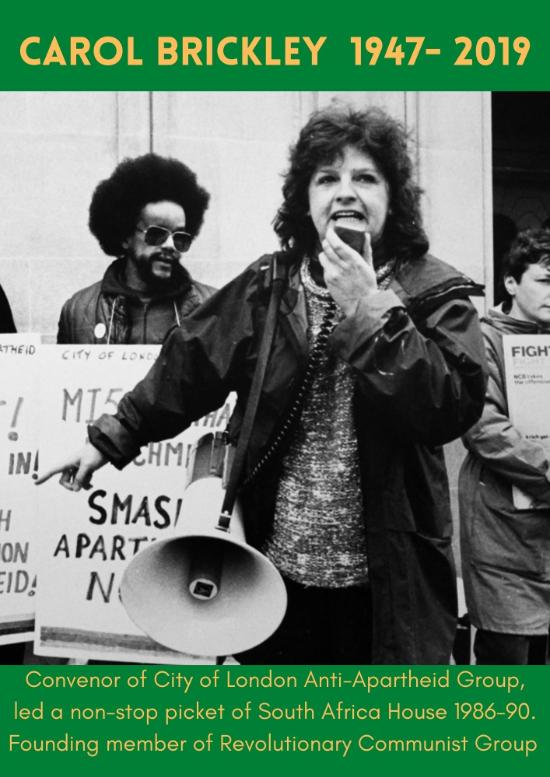Sakine Cansiz 1958–2013
Sakine Cansiz, codenamed ‘Sara’, was a lifelong activist for the liberation of Kurdistan and a founding member of the Kurdistan Workers Party (PKK) in 1974.
The Kurdish people are fighting for self-determination. Their lands were carved up by colonialists in the early 1900s. The Kurdish region is rich in oil, natural gas, iron ore, coal, silver, gold, copper and more. Geopolitically it straddles the old silk routes from Europe to China and India, and from Russia to Arabia, Egypt and Africa and has the headwaters of the vital rivers of the Tigris and Euphrates. After the first imperialist war, the Treaty of Sevres in 1920 offered the Kurds a small state on what is now Turkish territory, but this left out the Kurds of Iran, British-controlled Iraq, and French-controlled Syria. With the success of Turkey’s president Ataturk, the idea of a Kurdish state was dropped in order to appease colonialism’s new-found ally. The map of the Middle East that we know today was chiefly drawn up at the Cairo Conference, presided over by the British Colonial Secretary Winston Churchill, in March 1921. The borders were agreed in the Treaty of Lausanne. The Kurds were divided between Turkey, Syria, Iraq and Iran – the Kurdish minorities in each country were oppressed. This division was integral to imperialism’s domination of the Middle East. Palestinians and Kurds lost their lands and right to nationhood as a consequence of the outcome of the First World War.
Sakine Cansiz was one of the first women to join the modern Kurdish freedom movement, becoming active in 1974. She was one of only two women to participate in the PKK’s 1978 founding congress. In 1979 she was arrested and because she refused to betray her comrades, she was tortured harshly in the notorious Diyarbakir prison, Turkey, where at least 34 inmates died of torture between 1981 and 1989. Whilst imprisoned Cansiz continued her work for the Kurdish movement alongside fellow inmates, leading resistance for the 12 years she was detained. She was released in 1991, undertook legal work for the party in Lebanon, then went to train in the guerrilla camps in the mountains. She was sent to Europe to organise Kurdish communities there, and in 1998 was granted political asylum in France. In March 2007 at the request of Turkey she was detained in Hamburg pending extradition. Following massive protests, she was released.
On 9 January 2013 Cansiz was murdered alongside two of her comrades, Fidan Doğan and Leyla Şaylemez, in a political assassination in the Kurdistan information centre, Paris. Cansiz and her comrades were likely to have been central to important discussions that were underway between the PKK and the Turkish state in 2013, seeking an end to the armed conflict that has been waged since 1984. It appears that the murders were enacted to derail the talks. The murders of Sakine Cansız, Fidan Doğan, and Leyla Şaylemez have never been officially solved even to this day. Evidence points to a contract murder carried out by the Turkish intelligence agency MİT, but no-one has ever been charged, tried, or convicted.
Upon the news of the murders, tens of thousands of people took to the streets of Paris to salute the three women’s coffins, draped in the flag of the PKK (Kurdistan Workers’ Party). Many thousands of Kurds held a commemoration in Diyarbakir, in southeast Turkey.
Today, the prominence of women in the Kurdish freedom movement has been shaped by Sakine Cansiz and her female comrades who held women’s congresses to organise the Kurdish women’s movement. Women’s organising in the Kurdish struggle is evident, from the women’s defence units of the YPJ in Rojava fighting off ISIS, to the women’s councils and co-presidents of the significant administrations and governing bodies in the autonomous Rojava region.
(see My whole life was a struggle: the memoirs of a Kurdish revolutionary by Sakine Cansiz, published by Pluto Press)





